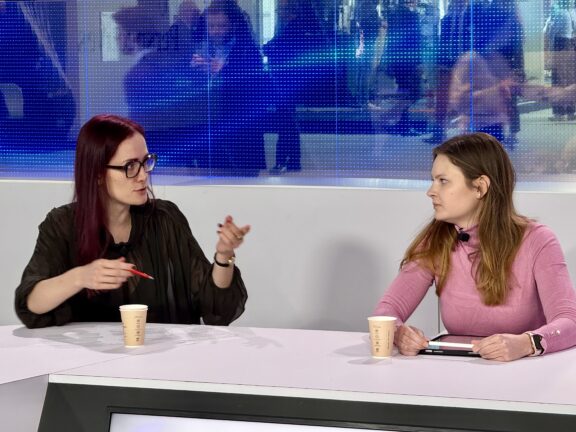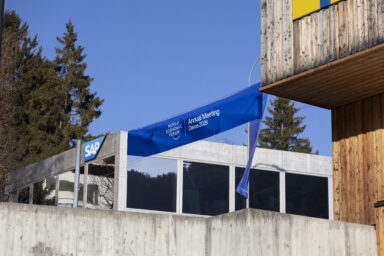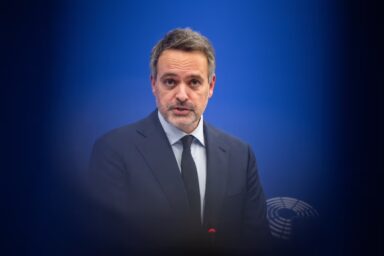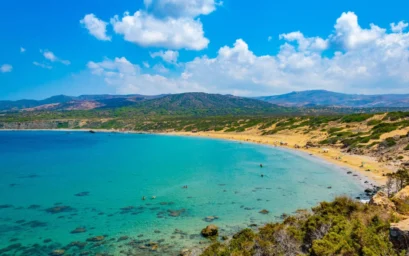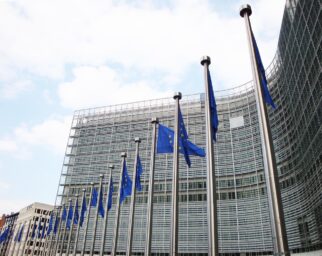We do not want war, and to prevent it, we must prepare for it, which means spending money. But let us be smart about it as the numbers are not everything, the Czech MEP Markéta Gregorová (Greens/EFA) insists. But even so, the numbers are on our side in the conflict with Russia, she said in the latest episode of the EU Perspectives podcast. The debate also featured her fellow MEPs Petras Auštrevičius (Renew/LI) and Rasa Juknevičienė (EPP/LI), as well as Martin Fedor, Slovakia’s ex-Defence Minister.
Where other politicians tend to equivocate when speaking of the tensions between the EU and the current U.S. administration, Ms Gregorová does not. “Donald Trump is the name that’s connecting (European Parliament’s political groups to one another). It’s not surprising – currently, he is not really a responsible, reliable ally,” she told her fellow debaters in the EU Perspectives podcast last Tuesday. “This being the after-1945 system, (the U.S.) was the ally supposed to protect us, to ensure stability and safety of the world. We did not want to have another world war. But now we need to change how we see geopolitics, and how we cooperate.”
Warriors and gardeners
She didn’t shy away from criticism of the European Union itself, either. “I am a huge critic of how the EU behaved before 2022 because I do think that our complacency in Georgia, in Armenia and in Ukraine 2014 actually caused Putin to think that we would not do anything again. So when we actually reacted, he was surprised,” she contended. “And while it was the Ukrainians who stopped him, we also have supported them, and we are now keeping them alive, keeping them in the fight.”
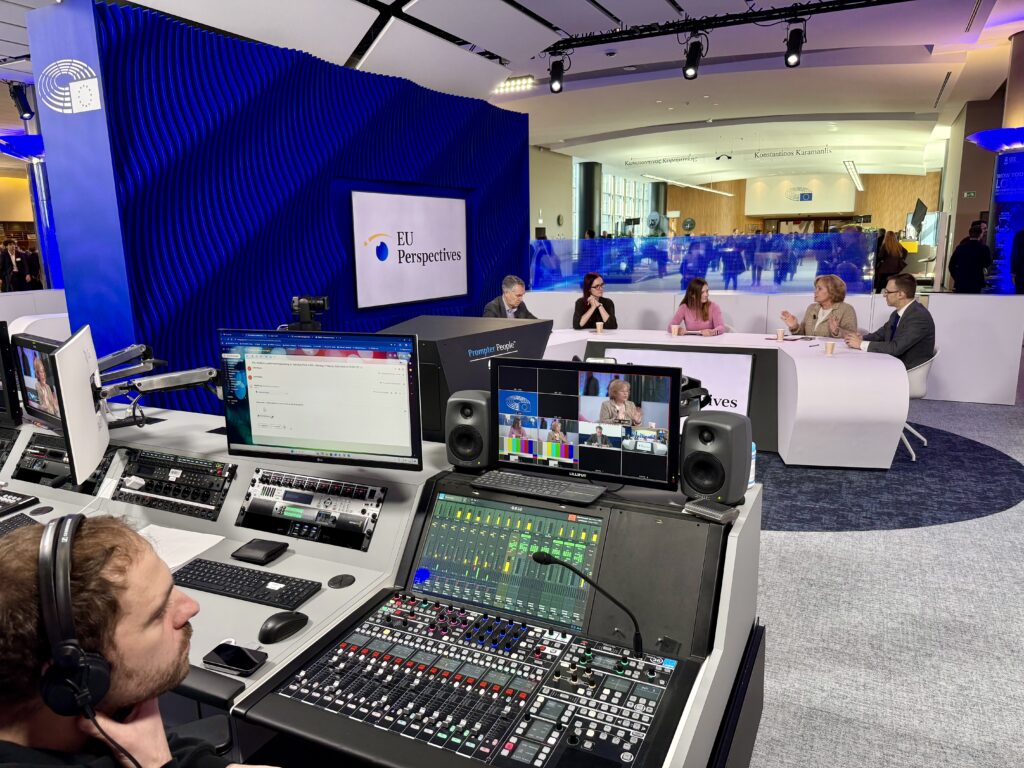
As the old adage has it, however, geopolitics does not run on intentions but on possibilities. Therefore, three big questions appear to have arisen for Europe from Putin’s actions: whether the situation necessitates going to war; how to finance the endeavour; and how to handle the suddenly volatile alliance with Washington. Ms Gregorová has bold ideas on all of it.
“Honestly, Russia really gave up a lot to ramp up its war economy. They gave up access to Western markets, they gave up their civilian economy, they worsened their inflation. They wouldn’t be doing this just for Ukraine. They are doing this because they are prepared for a long-term war,” she said, unsettlingly.
“And it’s not just Ukraine,” she went on. “They are prepared to take over Ukraine and then move forward to Baltics, to Poland and other countries. I think that we need to realise that we are playing this long-term. I will quote a Chinese proverb that I really like. In the current situation, it’s better to be a warrior in a garden than to be gardener in a war, you know. So I think we need to start thinking like that. We don’t want war, but in order to prevent it, we need to spend for it.”
You might be interested
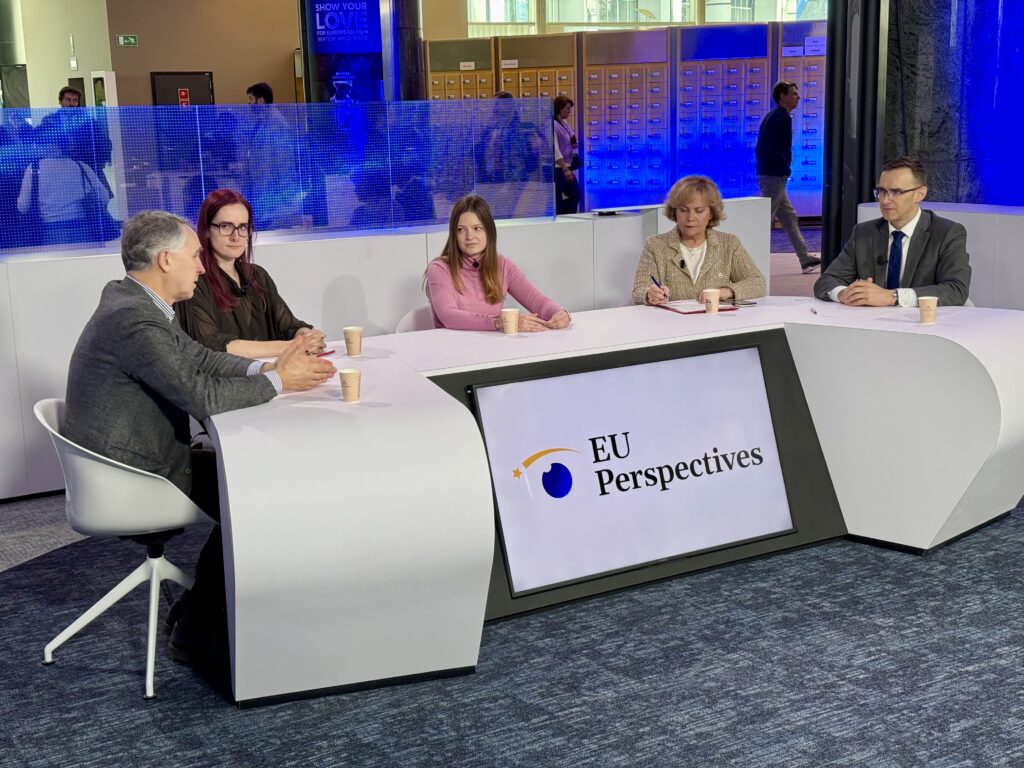
A good start
This, of course, begs a question as to how a gardener becomes a warrior overnight? “The common European defence, of course, is something we’ve had only on paper so far,” she admitted almost cheerfully. “But there is the eight-hundred billion (euros freed to spend by the EU member states outside the usual budget confinements), that’s an excellent number. So my ideal ambition is to have a fully autonomous European leg of NATO, one that is not dependent on our allies’ – and of course our adversaries’ – technologies. Let’s have Euro Eyes instead of Five Eyes, and so on.”
How realistic is that? “The eight-hundred billion, it’s a good start, but just a start. I want to bring into this debate what’s possible to do now, so I will talk about what we already hear about from the Commission, which is, of course, the €150bn in loans,” she went straight for the financial jugular.
“I think that’s pretty reasonable because a lot of people are asking, where will you take the money from? If it is a loan, then that’s where. You borrow it, which means you don’t take it from other parts of the budget. A lot of people are concerned about this, which means that they would probably veto it, block it or something,” Ms Gregorová said with a whiff of infectious optimism.
Maybe too much of it, Ms Gregorová’s fellow debater, the MEP Petras Auštrevičius (Renew/LI) thought. “All those ambitious promises from the European Commission. The eight-hundred bilion etcetera – you know, I take it as a promise, I don’t see it as a decision made. I don’t see across the board from the member states a commitment to come up with increased defence spending,” the Lithuanian member voiced his scepticism.
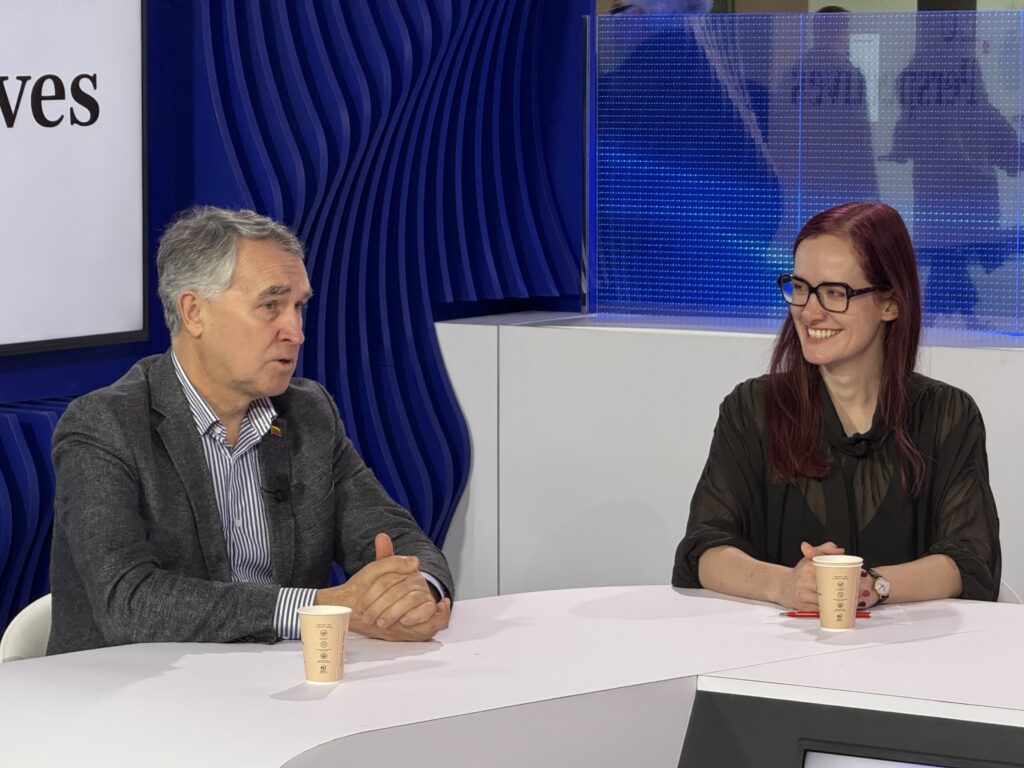
Industry spending is not all that matters
Ms Gregorová was undaunted. “I quite agree with Petras saying that we should be ambitious a lot, but not expecting a lot. But I think it’s important to realise that if all of our tanks, soldiers, all our forces were combined, then we are on, I think, 1.2 million soldiers. That’s when you count Ukraine in, which is currently the best army in the whole world, but minus Slovakia and Hungary.”
Favourable as this sounded, the numbers looked weaker on closer inspection, Slovakia’s ex-Defence Minister Martin Fedor then told the podcast. “It’s not only about increasing the budget (to buy) military equipment, but it’s about the military personnel. Now, at this stage, we don’t have enough military personnel. So we need to use also these increased funds for raising up numbers of military personnel in in those countries.”
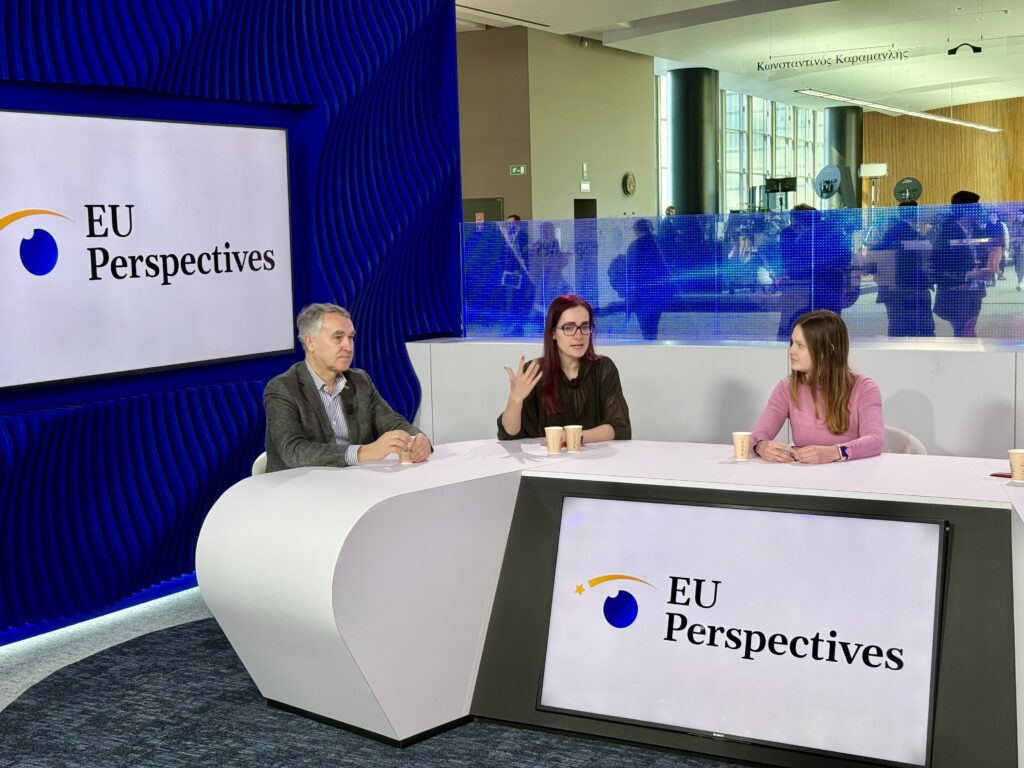
But the sheer number of soldiers was not enough, either, said another Lithuanian MEP in the podcast lineup, Rasa Juknevičienė (EPP/LI). “Do you think our societies are ready to defend their own countries, like Ukrainians did in the very beginning of the war, sometimes empty-handed?” the Lithuanian ex-Defence Minister asked. “I don’t want anybody to go to defend their own country with empty hands but (people) have to be educated in order not to have war on our continent. We have to have prepared societies, young people having to serve in the armed forces for a year. Not in order to have work in the future, but to have a world in the future. It’s not just about the military industries.”
Ms Gregorová agreed with the notion that military spending alone cannot do the trick, but tackled the issue from yet another standpoint. “If you can buy a tank that costs thirty million euros and you can buy a handful of drones that will take out the tank for a million euros, then it’s not about two per cent of GDP. It’s about buying the drones instead of the tank. Let’s be smart about it. We don’t need to force Spain into more than 1.5 per cent if they are not willing, but we can force them, so to speak, to buy smart,” she said.
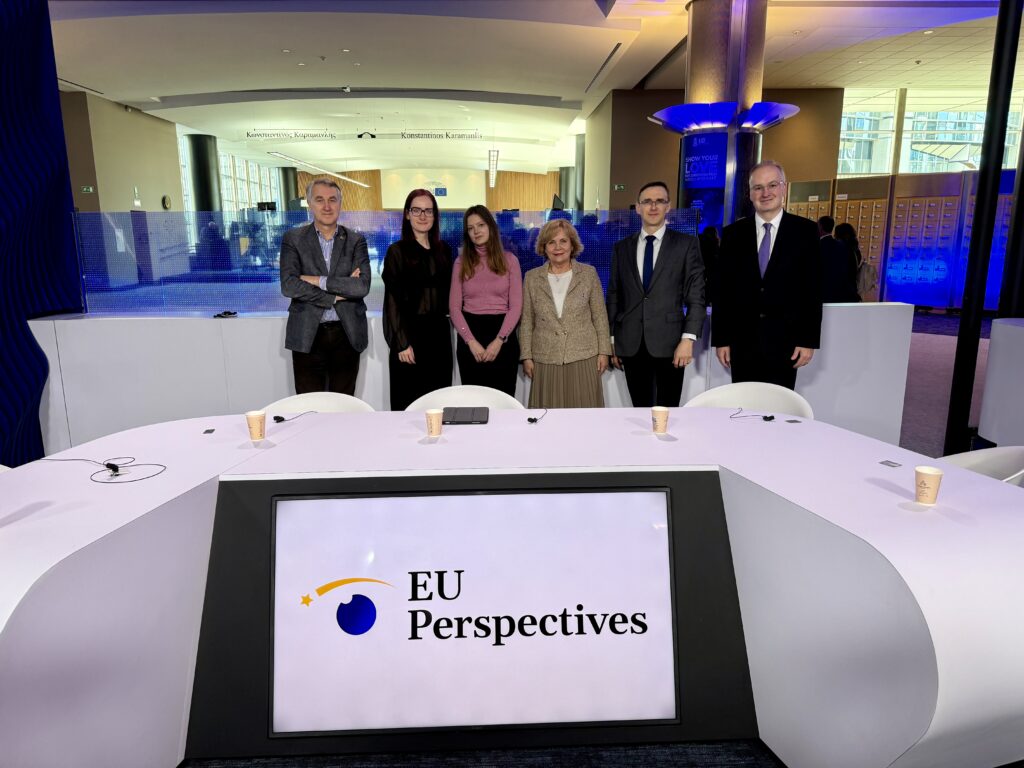
Buying smart
As if to prove the green credentials of her faction, she then went on to defend the much-maligned Green Deal in the defence context. “It’s important to note that a lot of the so-called Green Deal agenda is actually helping the military industry. Our common goal is diversification, decentralisation and not being dependent on autocracies, on their fossil fuels, etcetera. So the ‘evil’ Green Deal is not blocking us all the time. Plus the military actually has exceptions from most of the Green Deal regulations,” the MEP said with a healthy dose of her trademark optimism.
